Allo (RWA) Token Value Calculator
Token Value Estimator
Estimate the value of your RWA tokens based on asset backing and market conditions.
Estimated Token Value
Total Value:
$0.00
Asset Backing Status:
When you hear the term Allo (RWA) is a decentralized protocol that tokenizes real‑world assets and integrates Bitcoin staking to create a hybrid financial ecosystem. In plain English, it’s a blockchain platform that lets you turn things like property, shares, or commodities into tradable tokens, all while letting Bitcoin earn yield. If you’ve ever wondered whether crypto can actually own a piece of a building or a stock, Allo is trying to make that happen.
Quick Takeaways
- Allo token symbol: RWA; current price around $0.0075 (Oct2025).
- Offers 1:1 physical asset backing through custodial Special Purpose Vehicles (SPVs).
- Zero‑fee trading and instant settlement on the Allo exchange.
- Integrates Bitcoin via alloBTC to generate yield.
- Cross‑chain links to Babylon and Bitlayer expand market reach.
What Is Allo (RWA)?
Allo (RWA) is built around a single idea: bridge the gap between traditional finance assets and the crypto world. The protocol lets anyone create a digital token that represents a real‑world asset-whether it’s a rental property, a startup’s equity, or a barrel of oil. Each token is minted only when a custodial institution holds the actual asset in a 1:1 ratio, and the proof of ownership lives on‑chain for anyone to verify.
Key Components of the Ecosystem
The platform rests on a handful of building blocks that set it apart from other tokenization projects.
- RWA Ledger: A proprietary on‑chain registry that tracks every tokenized asset, its custodian, and audit status. This reduces paperwork and cuts transaction costs.
- Zero‑Fee Trading Mode: Trades on the Allo exchange incur no commission and no slippage, thanks to an automated market‑making algorithm that settles instantly.
- alloBTC: alloBTC transforms Bitcoin from a static store of value into an active yield‑generating instrument by staking it within the Allo protocol.
- Cross‑Chain Bridges: Partnerships with Babylon and Bitlayer enable assets to move between multiple blockchains, widening the investor pool.
How Tokenization Works on Allo
Imagine you own a small office building worth $500,000. Through Allo, you can:
- Set up a Special Purpose Vehicle (SPV) that legally holds the title to the building.
- Deposit the title into a trusted custodian that locks the asset.
- Allo mints 500,000 tokens, each representing 0.001% ownership (or any granularity you choose).
- These tokens can be bought, sold, or used as collateral on the Allo lending module.
The entire process is recorded on the blockchain, so anyone can verify that the tokens are truly backed by the physical property.
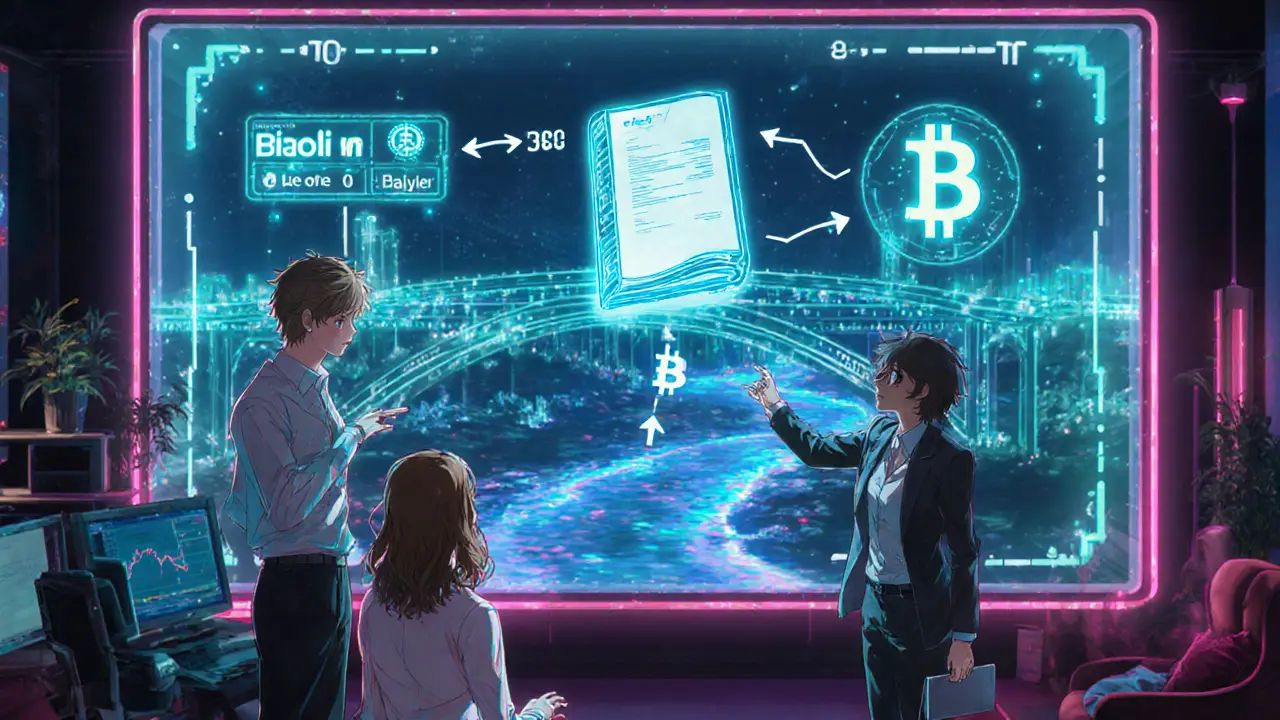
Market Snapshot (Oct2025)
Allo’s native token, RWA, has been volatile but shows clear growth potential.
- Current price: $0.00753 (CryptoRank) / $0.007526 (CoinGecko).
- 24‑hour price change: about -12% across major data providers.
- All‑time high: $0.0180 on 24May2025.
- Circulating supply: 1.80billion RWA (18% of the 10billion max supply).
- Market cap: roughly $14million; fully diluted valuation (FDV) around $72million.
- Trading volume: $2‑95million daily, with the RWA/USDT pair accounting for ~99% of liquidity.
Allo is listed on about 13 exchanges, including LBank, Gate.io, and MXC. The heavy USDT pairing suggests most traders prefer a stable‑coin anchor to manage volatility.
Why Allo Stands Out from Competitors
| Feature | Allo | Typical Competitor |
|---|---|---|
| Physical Asset Backing | 100% 1:1 via custodial SPVs | Partial or off‑chain verification |
| Trading Fees | Zero‑fee, zero‑slippage | 0.1‑0.3% per trade |
| Bitcoin Integration | alloBTC staking & yield | Limited or none |
| Cross‑Chain Support | Babylon & Bitlayer bridges | Mostly single‑chain |
| Liquidity Sources | Dedicated RWA/USDT pair | Fragmented across many pairs |
These advantages explain why institutional players are watching Allo closely, even though the ecosystem is still in its early stages.
Risks and Things to Watch
- Regulatory Uncertainty: Real‑world asset tokenization sits at the crossroads of securities law and crypto regulation. Changes in jurisdictional rules could affect custody or trading.
- Custodian Reliability: The whole 1:1 promise hinges on custodial institutions holding the physical assets securely and transparently.
- Adoption Curve: If the platform fails to attract sufficient liquidity, the zero‑fee model could become unsustainable.
- Technical Complexity: New users may find SPV creation, token minting, and the alloBTC staking process confusing without proper onboarding.
How to Buy and Trade RWA
- Set up a crypto wallet that supports ERC‑20 tokens (e.g., MetaMask, Trust Wallet).
- Buy USDT on a major exchange (Binance, Coinbase, etc.).
- Transfer USDT to one of the 13 Allo‑listed exchanges (LBank, Gate.io, MXC, etc.).
- Locate the RWA/USDT trading pair and place a market or limit order.
- After purchase, you can hold RWA in the exchange wallet, transfer to your personal wallet, or stake via the alloBTC module for additional yield.
Remember to enable two‑factor authentication and keep your private keys offline when possible. Security is especially crucial when dealing with tokenized assets that represent real property.
Future Roadmap and Outlook
Allo’s development team has outlined several milestones that could push the platform into mainstream finance:
- Collateral‑Based Lending: Users will be able to lock RWA tokens as collateral and borrow stablecoins, creating a full‑cycle DeFi experience.
- Expanded Asset Classes: Plans to onboard commodities like gold and agricultural products, plus private equity shares.
- Regulatory Partnerships: Ongoing dialogues with financial regulators in the EU and APAC to secure clearer licensing pathways.
- Enhanced UI/UX: Simplified token‑minting wizards and educational modules aimed at onboarding non‑technical investors.
If these items materialize, Allo could become a go‑to gateway for anyone who wants true ownership of a physical asset without the paperwork headaches.
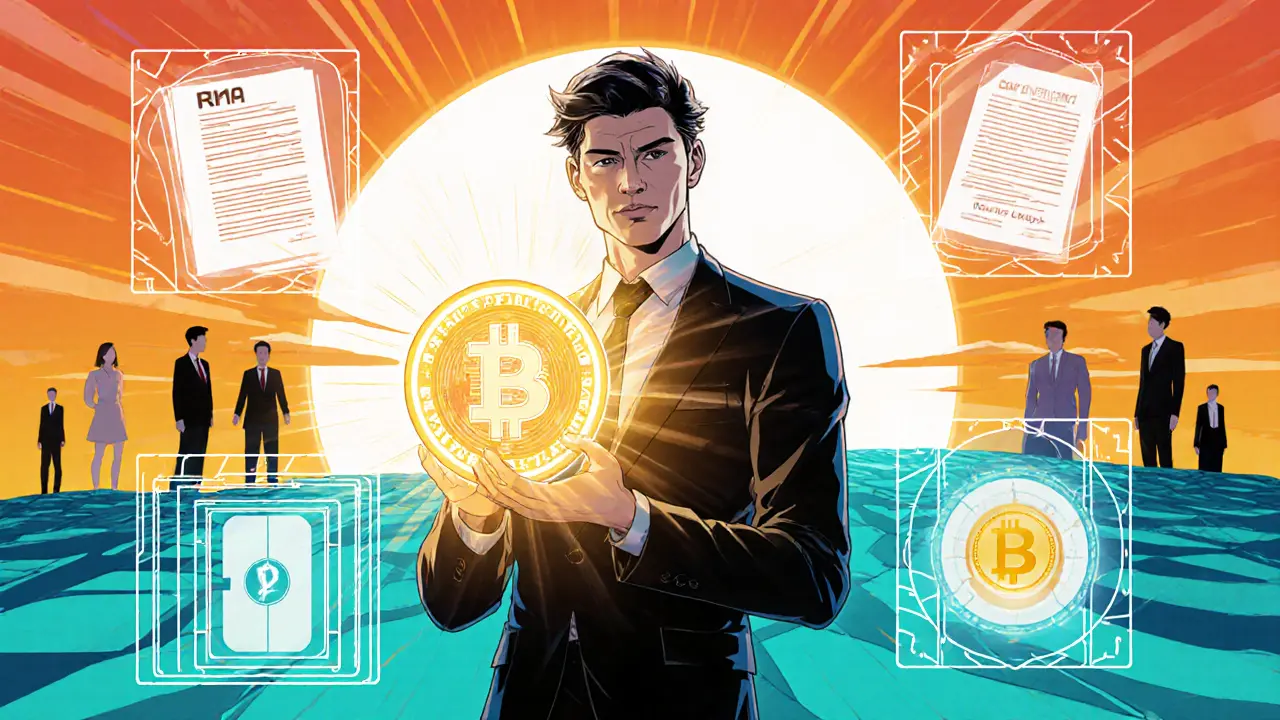
Frequently Asked Questions
What does the RWA ticker stand for?
RWA is the native utility token of the Allo protocol. It powers transactions, staking, and governance within the ecosystem.
How does Allo ensure a token is truly backed by a real asset?
Each token is minted only after a custodial institution locks the physical asset in a legally registered Special Purpose Vehicle (SPV). The on‑chain ledger records the custodial proof, and third‑party auditors periodically verify the holdings.
Can I earn yield with my RWA tokens?
Yes. By staking Bitcoin through the alloBTC feature, you can earn a return on your BTC holdings while still participating in the RWA market.
Is Allo’s zero‑fee trading really free?
Allo eliminates commission fees and slippage by using an automated market maker that settles trades instantly on‑chain. However, you still pay the usual blockchain gas fees.
What are the biggest regulatory hurdles for Allo?
Tokenizing securities‑like shares or real estate triggers securities laws in many jurisdictions. Allo must secure custodial licenses and comply with AML/KYC rules, which vary widely across countries.


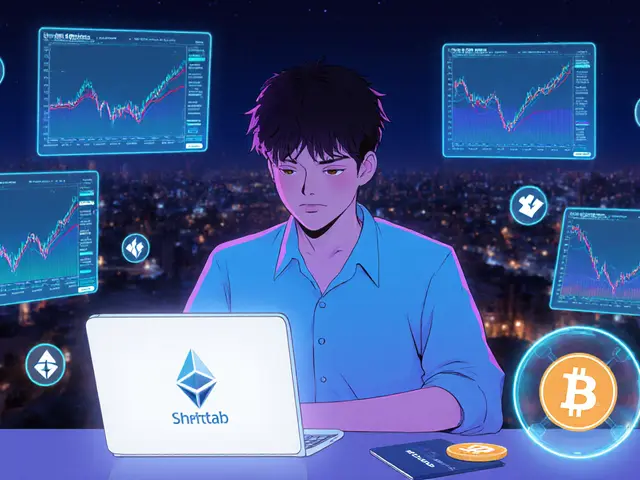
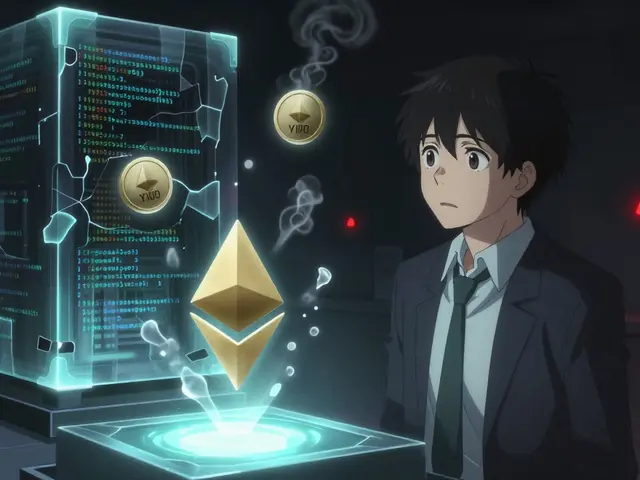
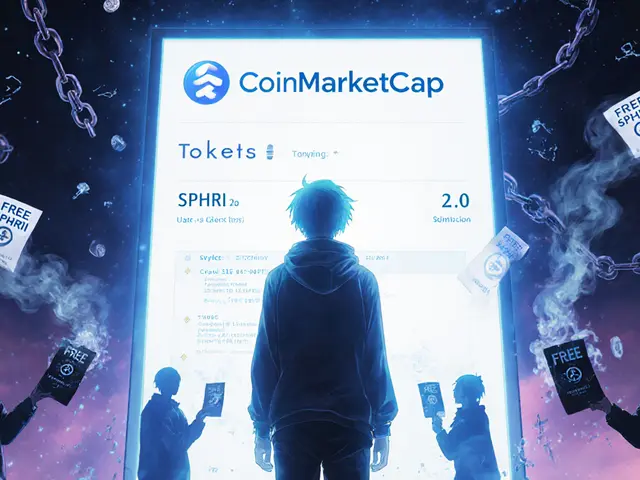
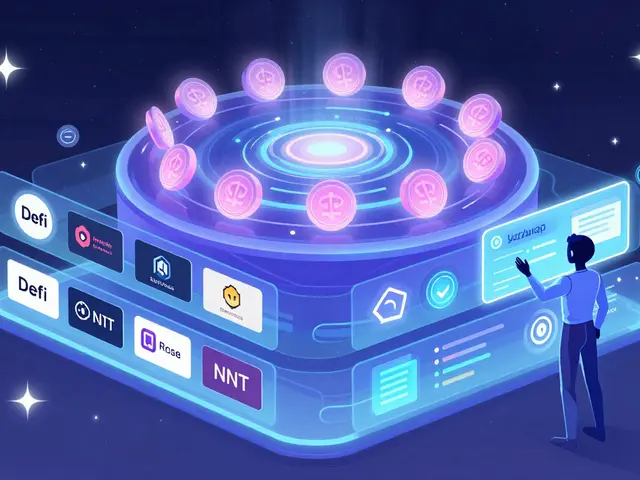
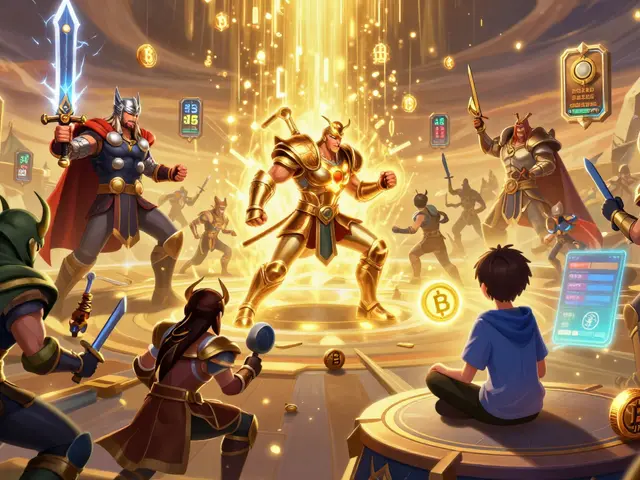
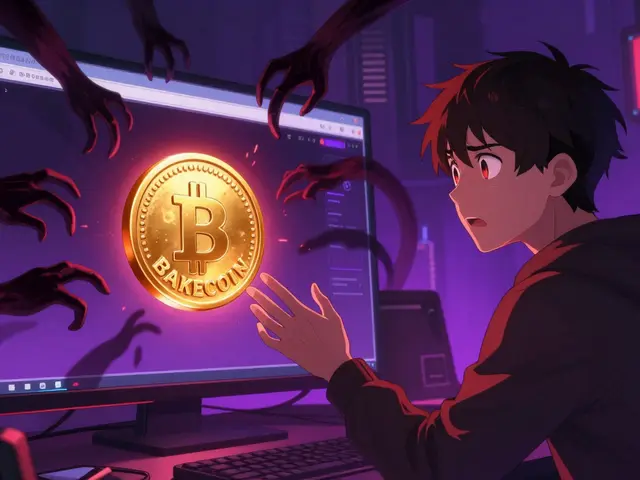
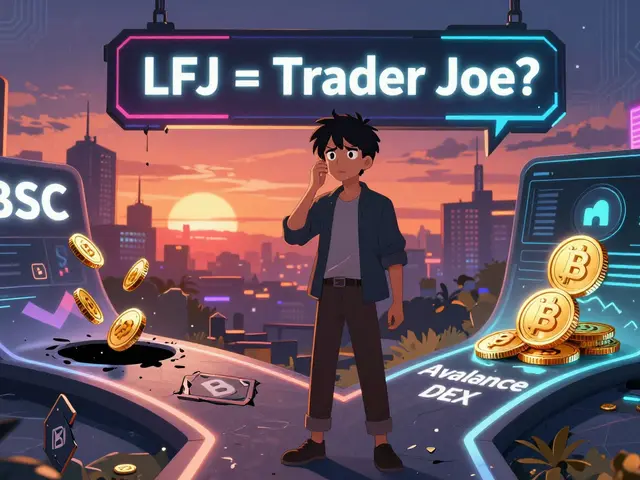


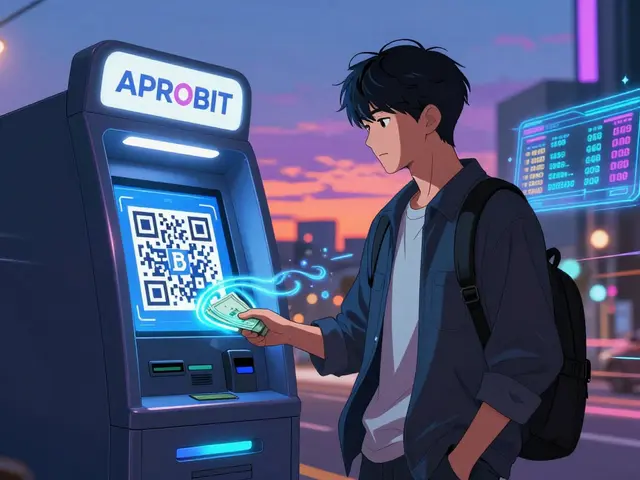
Charles Banks Jr.
September 1, 2025 AT 11:08 AMZero‑fee trading on Allo? Yeah, because every blockchain loves being free of gas costs. Guess they just swapped one hidden fee for a whole lot of paperwork.
Michael Wilkinson
September 10, 2025 AT 17:21 PMStop romanticizing tokenized real estate; it’s a regulatory minefield waiting to explode. If you can’t handle the compliance, stay out of the market.
Kate Roberge
September 19, 2025 AT 23:35 PMEveryone’s shouting about RWA tokens being the next big thing, but the reality is most of these assets are stuck in legal limbo. Until you see actual cash flow from a tokenized building, it’s just hype.
MD Razu
September 29, 2025 AT 05:48 AMTokenizing tangible assets on a public ledger forces us to confront the age‑old debate between trust in code and trust in institutions. When a piece of property becomes a line of code, the custodial entity still holds the real lever of control, turning the blockchain into a glossy receipt rather than a sovereign claim. The Allo protocol promises a 1:1 SPV backing, yet the audit trail can be as opaque as any traditional escrow if the auditor’s report lives behind a paywall. Moreover, the zero‑fee model merely shifts cost to the underlying network, where gas spikes can erode any marginal gains. From a philosophical standpoint, we are negotiating a new social contract where ownership is verified by consensus rather than deed registration. This raises questions about jurisdiction: which court enforces a breach when the token’s claim is contested? The answer often lies in a hybrid arbitration that blends smart contract clauses with conventional law. In practice, investors must navigate both worlds, understanding that a smart contract cannot magically nullify a lien on the underlying asset. The inclusion of alloBTC adds another layer of complexity, turning Bitcoin from a store of value into an income generator, which may dilute its original risk profile. While yield sounds enticing, it is essentially a promise of future fees that could be throttled by market dynamics. Regulatory bodies across the EU and APAC are already flagging RWA token offerings as securities, so compliance costs could balloon. Should the platform lose its licensing in a major jurisdiction, the entire token pool could become illiquid overnight. Diversification across multiple asset classes, as Allo intends, may mitigate concentration risk but also spreads verification challenges. Users must also consider the custodial risk: a single breach at the SPV level could jeopardize thousands of token holders. Finally, the roadmap’s ambition to introduce collateralized lending hinges on robust valuation mechanisms, which are still in their infancy. Until these systemic issues are addressed, the promise of true decentralized ownership remains more aspirational than operational.
april harper
October 8, 2025 AT 12:01 PMAllo’s glossy UI masks the grind of paperwork behind every token mint. If you’re looking for shortcuts, you’ll hit a wall of legalese. The drama of “real‑world” ownership quickly fades into quiet bureaucracy.
Carl Robertson
October 17, 2025 AT 18:15 PMThe hype train for Allo is fueled more by marketing swagger than substance. Their cross‑chain bridges promise connectivity but often introduce fragile attack vectors. Zero‑fee trading sounds like a giveaway, yet liquidity remains concentrated in a single USDT pair. In short, the platform is a house of mirrors, reflecting optimism while hiding risk.
Rajini N
October 26, 2025 AT 23:28 PMTo verify that an RWA token is truly backed, start by checking the on‑chain ledger entry that links the token ID to its SPV contract. Then locate the third‑party audit report, which should be publicly hosted on the Allo documentation site and reference the custodian’s name. Finally, cross‑reference the custodian’s registration details with the relevant financial authority in the jurisdiction where the asset resides. If all three sources align, you have a reasonable assurance of 1:1 backing.
Jason Brittin
November 5, 2025 AT 05:41 AMZero‑fee? Sure, just ignore the gas. 😏
Lindsay Miller
November 14, 2025 AT 11:55 AMIt’s cool to see new ways to own a piece of a building, but remember to keep your private keys safe and only invest money you can afford to lose.
Waynne Kilian
November 23, 2025 AT 18:08 PMI think the idea of tokenizing real assets is promising, even if the road ahead looks a bit bumpy, keep an eye on the regulatory updates.
Billy Krzemien
December 3, 2025 AT 00:21 AMGood overview, and the roadmap looks solid; just stay aware of the legal side before jumping in.
Clint Barnett
December 12, 2025 AT 06:35 AMThe Allo ecosystem is like a kaleidoscopic marketplace where each token reflects a slice of the physical world, glittering with potential yet tinged with the shadows of compliance. When you mint a token backed by a property, you’re essentially handing a digital passport to that asset, which can travel across chains via Babylon or Bitlayer without losing its identity. This fluidity can attract a broader pool of investors, but it also demands rigorous audits to prevent the dilution of authenticity. The zero‑fee model is seductive, but remember that the underlying blockchain still consumes gas, which can spike during network congestion. Combining Bitcoin staking through alloBTC adds a layer of yield, turning a traditionally static asset into an income‑generating instrument. However, the yield rates are not guaranteed and can fluctuate with market conditions, so treat them as supplementary rather than primary returns. On the regulatory front, aligning with EU and APAC frameworks could unlock institutional participation, yet it also imposes tighter KYC/AML requirements. In practice, a user should maintain a diversified portfolio, balancing tokenized real estate with other asset classes like gold or equity to spread risk. Ultimately, Allo offers a promising bridge, but crossing it wisely requires due diligence, patience, and a healthy dose of skepticism.